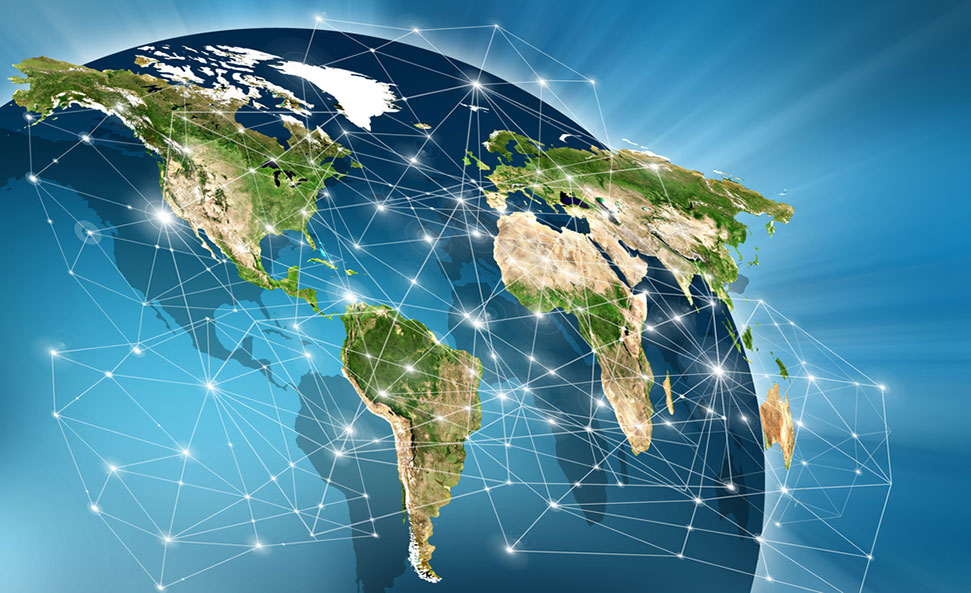
The world is facing a newfound threat of human security from the impact of globalisation. Globalisation has fairly divided the world into the global south and north. The monoculture and mono-economic hegemony of the global north in the era of globalisation has resulted in the destruction of local economies and cultures in the global south. Alvin Toffler in his book “Third Wave” forecasted the rapid change in technologies and mode of productions in the coming eras. Technology and modes of production are changing so rapidly that it has caused a huge generation gap or status quo between developed and under-developed countries.
In conventional times, industries designed products as per local cultures. In globalisation, cultures are being influenced by industries instead. Global north is technologically more advanced in industrialisation and using the elements of media, marketing and foreign investments in the global south, the global north countries have proved that their culture, economy and mode of production would be a leading giant in the markets. The generation gap in countries’ technological progress led to a biased and uncontrolled transformation of the production system in developing countries. Market consumers are highly motivated by the imported products and foreign modes of production; as a result, local marketers are bound to follow the rapid transformation of production in their businesses. These trends of globalisation do not meet the rate of local transformational capability and resources. Even a single businessman of a photo studio in a small village of a country is bound to replace the printing technology decade after decade due to the global technological advancement in his surrounding and larger cities of his country. And as a result, the high range of competition between locals for competing technology has been raised with an uncertain and uncontrolled manner and that has affected the socio-economic values.
In the last few decades, more than 40 percent of the population in the global south had been pushed below the poverty line. The crime rate, terrorist attacks and liberation movements due to the growing socioeconomic disparities had immensely increased in past decade. Controlled and gradual competition and advancement is beneficial for progressing. But the ongoing technological progress as an impact of globalisation is a loss to the moral and socio-economic values of the global south. Few decades back, many territories that were considered as cultured and peaceful are now becoming the victim of competition and have dropped off their socio-economic values i.e. Ladakh. As a result, they become the victims of artificial scarcity. Despite having all the capabilities and resources, they are becoming the victims of technological advancement in globalisation and facing major hunger crises while 35 percent to 45 percent of their population below the poverty line.
Every country has its own transformational rate in respect to its human power, resources, geography, and stance in international relations. Globalisation has ignored this fact and every country is forced to follow the transformational change of the most developed country. The global north is continuously investing in the global south countries for more income generation and destroying the local transformational rate. As a result, the local population is going below the poverty line and then to stabilise the economy, the global south is then bound to take loans and aid from global north countries. In the present condition, as a fact, cultures, economics, business, marketing, financial resources, politics and trade are all mono-cultured. That cannot be reversed for now. As a fact, society’s negligence in comparing these technical influences in the daily market lives will be a call to their end. The concept of conventional or local production without being a part of globalisation is nearly going to completely end. Therefore, such a revolutionary change, if not managed properly, can cause destruction in the social world more than that caused by industrialisation.
Afterward, the fourth revolution of robotics is going to give an even higher instant boost to globalisation. The complete mono-culture dominance will raise the economic and cultural competition to an extreme level. Machines or artificial intelligence will raise the transformational rate of the global north to an even larger extent and then again, the global south is bound to follow those transformational rates. Hence, even more destruction to the local economies and culture as compared to the past decades. Hence, these aspects raise concern for human security for the global south. In order to stop further exploitation, the major steps have to be taken for self-help. The government has to influence its controlled governance in many sectors. Above all, education should be promoted in advanced courses. The public policies on state level should be charted to stop population uncertainty. The more controlled economy should be emphasised. Altogether, the government’s concentration toward this sector is immensely important for stable and well-being socio-economic values.
Source: Published in The Nation


